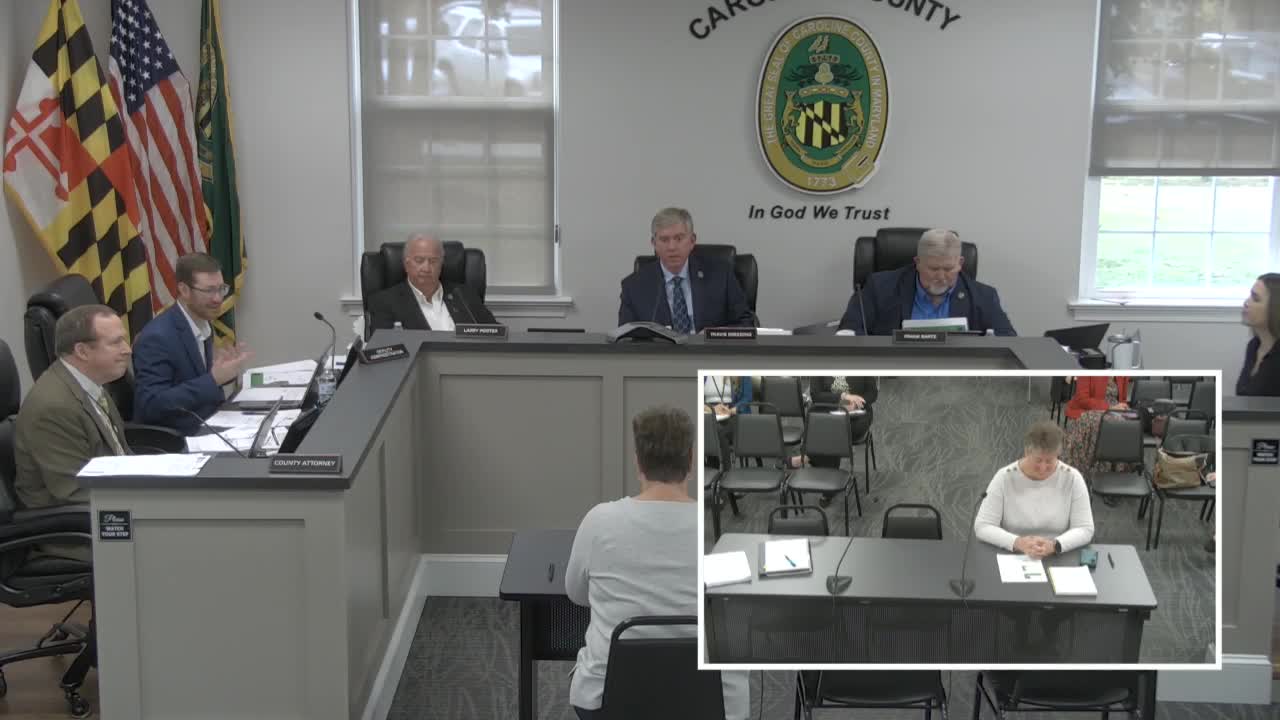Caroline County outlines grant process for opioid settlement funds; first round of awards planned as pilot
Get AI-powered insights, summaries, and transcripts
Subscribe
Summary
County finance, health and corrections staff presented a plan to manage opioid settlement dollars: two funding streams (local settlement receipts and state 'targeted abatement' funds), an annual non‑competitive grant process aligned to state Exhibit E categories, and a proposed pilot round of smaller grants this fiscal year.
Stacy (Finance), county staff and health department leaders explained Caroline County’s plan for opioid settlement money during a required public hearing on Oct. 28 and proposed an initial county grant process for the funds.
Two funding streams: Stacy told the commissioners Caroline County has received $461,152.03 in direct local settlement payments and $808,265.62 in state‑received targeted abatement ("tag") funds so far. The state program requires each county to submit a local abatement plan; Caroline’s plan was approved Sept. 20, 2024 and is valid for five years. Counties must align proposed uses with the state’s Exhibit E list of allowable remediation strategies.
Grant framework described: county staff proposed a formal county grant application and an award agreement to govern recipients, plus a reporting template so the county can meet the state’s annual reporting requirements. For a first pilot round, staff suggested a cap for individual awards in the $15,000–$20,000 range to test the process, reporting and monitoring. The county’s draft approach also includes a template grant agreement for internal departments and outside agencies to ensure consistency in reporting and compliance.
Administrative questions and constraints: county staff said the state allows administration that is directly connected to programs, but is not explicit about covering county administrative overhead; staff therefore recommended caution when budgeting county operating costs from settlement receipts. Commissioner questions focused on whether the county should reserve part of the funds to fully cover the detention center’s Medication‑Assisted Treatment (MAT) costs if other reimbursements decline; staff said they would calculate current MAT costs and funding sources and return with options.
Judge Price, representing the county problem‑solving court, spoke in support of awards for diversionary and court‑based treatment services. Price described the court’s current program (about 15 participants), immediate needs for incentives, transportation and housing support, and plans to form a 501(c)(3) advisory body to help sustain some operations over time.
Why this matters: The settlement funds are recurring payments across several years and must be used for opioid remediation and treatment strategies defined in the state plan. County staff said they prefer to pilot a small grant round now, refine the paperwork and then run a larger/regular grant process in FY27 to distribute funds in a predictable annual cycle.
Ending: County staff will finalize application materials, compute current MAT costs for the detention center, and return with recommended grant timing and award panels for commissioner review.
